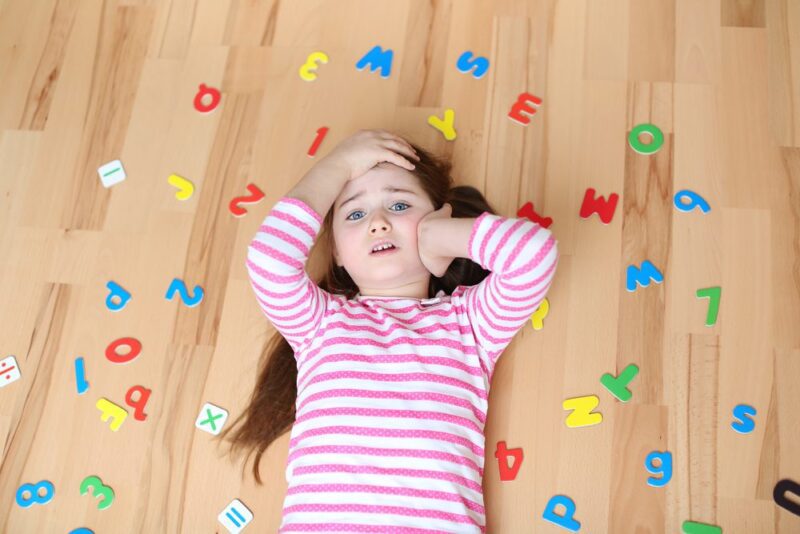
06 Nov Rewards & Punishments in Montessori: A Different Approach to Discipline
Rewards & Punishments in Montessori: A Different Approach to Discipline
As you step into the serene and inviting atmosphere of a Montessori classroom, you might notice something strikingly different—there is no reward chart on the wall, no list of rules, and surprisingly, no sense of fear or strict oversight. Instead, there’s an air of quiet diligence, mutual respect, and deep engagement among children. At Sugar Mill Montessori in Sugar Land, TX, this reflects our unique approach to discipline, which is deeply rooted in the Montessori philosophy. Let’s explore how this method fosters responsibility, empathy, and a lifelong love for learning in children.
Learn how Montessori methods handle tantrums without rewards and punishments. Read more here.
Understanding Discipline in Montessori
Montessori education transforms traditional concepts of discipline. The focus shifts from external rewards and punishments to promoting intrinsic motivation and self-discipline in children. But how do we accomplish this? Here’s a closer look:
Encouraging Intrinsic Motivation
In the Montessori setting, we believe that the true joy of learning itself is a sufficient reward. Our role is to nurture this natural curiosity by providing an environment where children can explore and discover on their own terms. When intrinsic motivation guides a child, the need for external rewards diminishes—they become driven by their interests and the pleasure of achieving personal goals.
Guiding Toward Self-Discipline
Children are surprisingly capable of regulating their own behavior when given the right tools and understanding. In Montessori classrooms, we introduce the concept of freedom within limits—a framework where children are free to explore activities of their choice but within set boundaries that they understand and respect. This encourages self-discipline, which is far more enduring than obedience extracted through fear of punishment.
Embracing Natural Consequences
Instead of imposed punishments, Montessori relies on the philosophy of natural consequences. For instance, if a child is careless with a piece of classroom equipment, the natural consequence may be that the equipment is no longer usable. Experiencing these outcomes helps children understand the impact of their actions and guides them to modify behavior through personal insight rather than fear of reprisal.
Creating Bonds Through Validation
A cornerstone of behavior management in Montessori education is acknowledging and validating children’s feelings. By recognizing emotions without judgment, we teach children to articulate their experiences and manage their emotions constructively. This validation builds a trusting relationship, which is crucial for effective discipline and guidance.
Here are practical ways parents can practice Montessori principles at home:
- Listen actively: Show genuine interest in your child’s feelings and stories.
- Offer choices: Empower them with age-appropriate decision-making opportunities.
- Set clear expectations: Provide structured choices and clear consequences that align with family values.
- Model behavior: Be the behavior you wish to see in your child. Practice patience, empathy, and respect.
The Lasting Impact of Montessori Discipline
Adopting Montessori methods for positive discipline does more than manage behavior—it cultivates competent, confident, and responsible individuals.
Children learn to:
- Reflect on their actions.
- Make informed choices.
- Consider the feelings and needs of others.
- Love learning and value perseverance.
At Sugar Mill Montessori, we witness daily how nurturing an intrinsic motivation and responsible independence fosters not just academic success, but well-rounded, positive disciplined, empathetic human beings ready to contribute positively to their communities.
Step into the transformative space of Montessori education by scheduling your tour with us today!
Frequently Asked Questions (FAQs)
Q: What are the key principles of discipline in a Montessori environment?
A: The key principles of discipline in a Montessori environment encompass learning to respect oneself, others, and the environment, encouraging children to act based on internal motivation rather than external demands or rewards, providing freedom to explore and learn within clear, firm, and consistently applied boundaries, and guiding children to develop control over their own behavior through natural and logical consequences.
Q: How does a Montessori classroom handle conflicts between children?
A: Montessori classrooms encourage children to solve their conflicts through peaceful communication and mutual respect. Teachers guide children to express their feelings and needs verbally and to listen to others, promoting empathy and social understanding.
Q: What role do teachers play in the discipline process in Montessori schools?
A: Montessori teachers act as facilitators of the learning and discipline process. They set clear expectations, model appropriate behavior, and employ non-punitive methods to help children understand the impact of their actions and correct their behaviors independently. Teachers are also observers, knowing when to intervene and when to allow children to resolve issues on their own.
Q: What are some specific Montessori techniques used to promote self-discipline?
A: In Montessori environments, self and positive discipline are promoted through a prepared environment that encourages respect, choice, and ownership over activities, role modeling by teachers, and learning through natural consequences, leading children to reflect on and modify their behavior.
Q: How can parents support Montessori discipline methods at home?
A: Parents can create a consistent routine and clear boundaries at home similar to the Montessori classroom setting. Encouraging children to participate in household duties helps develop a sense of responsibility. Also, parents should use a calm and respectful tone and offer choices to empower children to make decisions. Practicing active listening and empathy at home further supports the development of self-discipline and mutual respect.
Do you have a question about discipline in Montessori, or wish to explore more about our nurturing learning environment? Contact Sugar Mill Montessori today!
Contact Sugar Mill Montessori
If you’re curious to explore more about how Montessori can shape your child’s educational and personal development, contact us at Sugar Mill Montessori. We’re excited to partner with you in nurturing a lifelong love of learning and a solid foundation in self-discipline and mutual respect.



Sorry, the comment form is closed at this time.